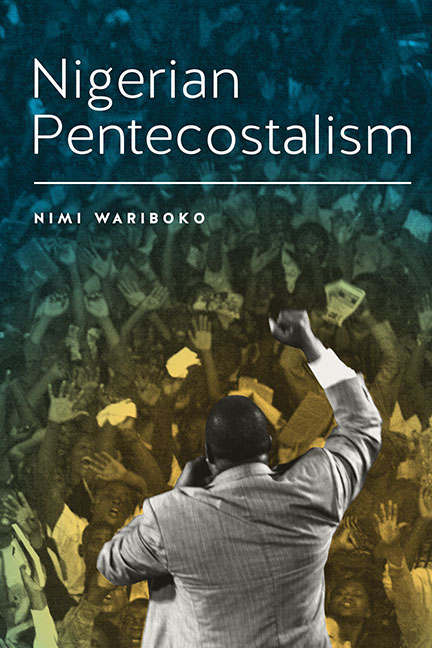Introduction
Published online by Cambridge University Press: 15 March 2018
Summary
What is unthought in thinker's thought is not a lack inherent in his thought…. The more original a thinking is, the richer will be what is unthought in it. The unthought is the most precious gift a thinking has to convey.
—Martin Heidegger, What Is Called ThinkingNigerian Pentecostalism was otherworldly before the 1980s and only became this-worldly in the 1990s; so the experts and ordinary folks hold. To describe the Pentecostal religion as only otherworldly or this-worldly is inaccurate, and it ignores what is common to the movement before and after 1980: a common grammar of spiritual optics. This is an orientation that considers concrete, visible realties as framed, animated, and underpinned by things that are not seen. In it the themes of otherworldly and this-worldly spirituality are intertwined and complementary. The uncovering of the inner logic of this orientation across periods and spheres of social existence will require working our way through ethnographic data, social scientific–philosophical analyses, and careful understanding of the complex history of Pentecostalism. (In chapter 1 I will provide a history of the movement in Nigeria.)
The complex history of Nigerian Pentecostalism is easy to grasp if we adopt a simplified periodization, as many of the leading scholars of Nigerian Christianity do. They delineate three periods, the first of which is the years before 1980 when the movement began to separate itself from the African Independent—or Initiated—Churches and missionary churches and built its foundation with interdenominational fellowships and Scripture unions in the universities and secondary schools. The emphasis of their preaching was on holiness, sanctification as necessary and urgent preparation for the “end time,” the second coming of Jesus Christ. This period also coincided with rapid economic growth and production of wealth fueled by a boom in crude oil revenue.
The second period, in the 1980s, saw the organization of ministries and churches and their leaders’ drives to increase membership rolls. During this period the fabric of the nation's economy came under severe strain as prices of crude oil collapsed in the marketplace amid rising corruption by the nation's military and political leaders. Pentecostal (neo- Pentecostal, charismatic, born-again) leaders’ ambitions to increase the memberships of their churches shifted the emphasis of their message from sanctification to prosperity, healing, and deliverance from satanic powers.
- Type
- Chapter
- Information
- Nigerian Pentecostalism , pp. 1 - 14Publisher: Boydell & BrewerPrint publication year: 2014

